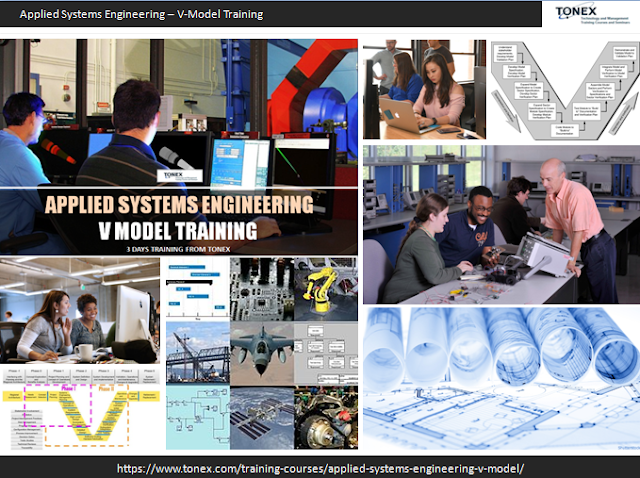
Applied Systems Engineering , V Model is an important part of systems engineering. The goal is to allow these individuals to understand the benefits of applying V-Model approaches as a means of developing quality systems. This course is an introduction to systems engineering and V-Model for project managers and project staff. It provides a high-level view of a broad and rich topic area, introducing basic concepts to individuals who are working on systems and software engineering and IT projects.
Audience
Who Should Attend:
IT professionals or technical persons at all levels of government and in the private sector.
IT project managers, technical team members, contractors, and staff are all appropriate participants.
Project managers would particularly benefit from this course since they direct many peoples' efforts.
Any level of professionals involved in IT may attend to broaden their understanding of complex systems, beyond current technical knowledge.
Course objectives:
Upon completion of the course, participants will be able to:
Define Systems Engineering and its application to ITS.
Describe the system's life cycle and its relationship to systems engineering.
Develop, derive, and validate requirements for a system.
List the systems engineering tools available to mitigate risk.
Define and apply the concept of earned value as a tracking mechanism.
List three alternative strategies that may be applied to decision making under uncertainty.
Identify where to find appropriate standards for developing ITS projects.
Identify resources that may help project personnel to look at systems as a whole.
Course outlines:
Overview of Systems Engineering and the Rational for the V Model (Vee Model)
Fundamentals of the V Model
The Concept of Operations (ConOps) in the V Model
V Model Systems Requirements and Specifications Writing
System Design in the V Model
Implementation, Testing, Operations, and Maintenance
Cross Cutting Activities in the V Model
Risk Management
The course covers technical practices such as principles of V Model, system modeling, prototyping, trade off analysis and testing, and management practices such as risk assessment and mitigation, which make up ”best practices” in the systems engineering arena.
Request more information regarding applied systems engineering, V Model Training. Visit Tonex website links below

Comments
Post a Comment